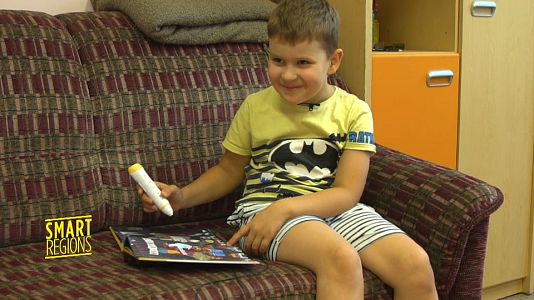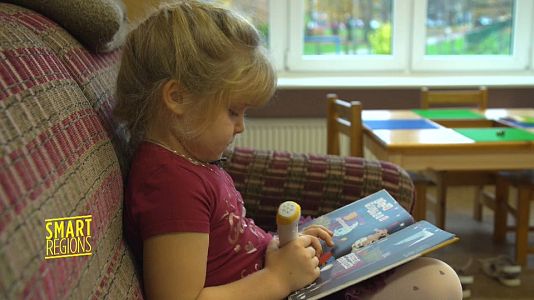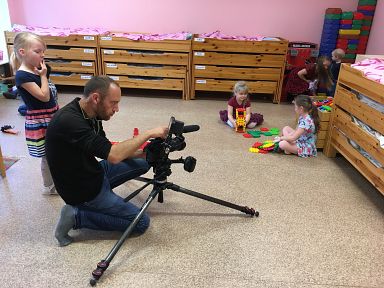An innovative project combines old-fashioned storytelling with digital technology in Estonia and Latvia to kindle a new love of books among kindergarten children.
In Tallinn, Estonia, a new kind of learning tool is aimed to spark a fresh love of books in kindergarten children.
The innovation brings together the best in old-fashioned storytelling with new digital technology, meaning that youngsters use a digital Smart Pen to explore a series of new books about well-loved Latvian characters The Shammies.
"The first goal was to make early education more cheerful and playful, and then bring children more back to the books. Because they are attracted to smartphones and computer games," says Laura Päit, who manages the project, called How The Shammies Learned.
The pen teaches motor skills, and rewards the children by singing, reciting poems, and asking questions, in either Latvian or Estonian, as they browse the illustrations and text.
Triin Orunurm, kindergarten teacher at Tallinna Manni Lasteaed in the Estonian capital explains how it works: "They can take the pen & put it near the picture and the book comes alive."
The project began as experts became concerned at a lack of fresh, high-quality teaching materials for early learners in these two Baltic countries and beyond. They combined forces across the border, putting together a well-known publishing house with academics and SMEs. The project team, who benefited from from €370,000 in EU Cohesion Funds, created five books and one game in both Latvian and Estonian.
The results are now being tested in over 400 kindergartens, where there is a need to boost awareness of books, according to one of the principal authors.
"There are kids that don’t know that a book starts here, and goes like this, and ends like this. There are kids who don't have at home books, and parents obviously don't read books, and so on," says Maira Dobele, Script Writer and Author at Liels Un Mazs.
Teacher Triin Orunurm agrees: "I see in my everyday work that children actually prefer more the smart gadgets than books, especially screen based devices," she tells Euronews.
Education experts from Latvia and Estonia provided pedagogical guidelines for the series, and will now evaluate how well they've met their goals.
Working across the two countries was a fascinating challenge, says one of the academics, Maria Jürimäe from the University of Tartu in Estonia.
"The pedagogical guidelines are developed with the cooperation of the University of Latvia, and it has been interesting, because our ideas about early learning have been also quite different. They are maybe more academically oriented, and we are more child-centered and play centered, and discover-learning. And I think we have enriched each other," she explains.
The experts see the Smart Pen as a powerful tool to boost engagement and get youngsters turning the pages.
"Some children think that they need some action, they need some response," says Jürimäe. "Now this device helps to connect books with all those good features of digital screens, without the screen."
Back at the kindergarten, and another aspect of the pen and book becomes clear, as the children go over the pages several times and listen to the same voices.
"Small children, they want to hear it again, and again, and again, and again, and again, and sometimes parents are like, 'that's one hundred times already,' and the pen can do it 100 times," laughs Päit.
The next step is for this digital pen and book concept to travel further, with plans to translate the text, songs, and poems into other languages like Finnish.














